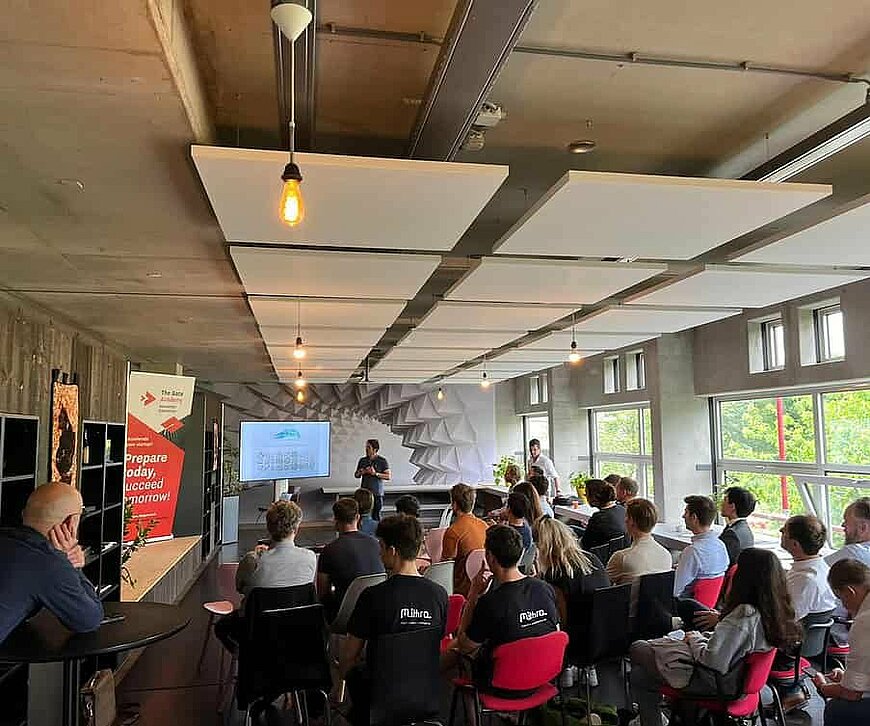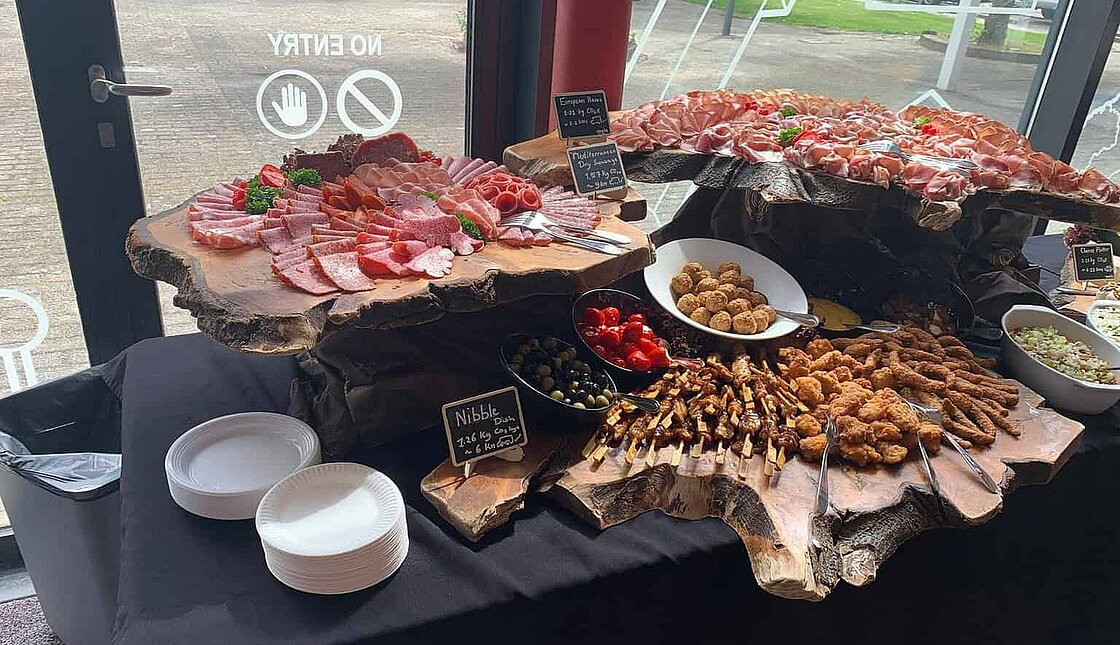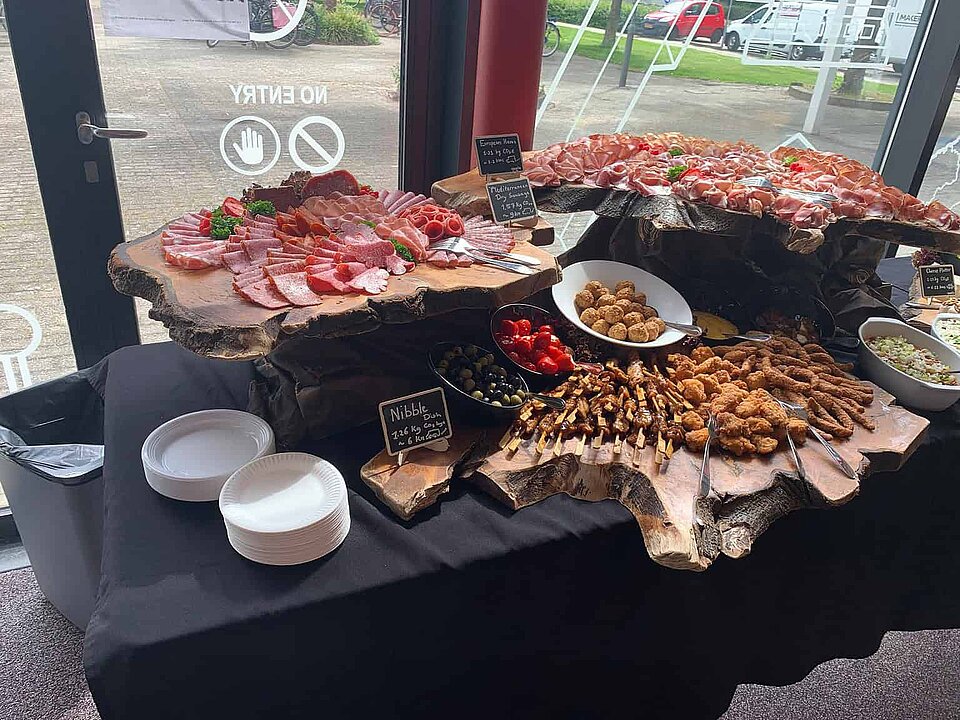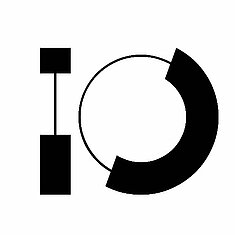Promising tech startups thrive in the ALPHA Building

On 16 May, at the annual ALPHA day, startups presented their innovations to each other and the attendees.
A special liquid from UPyTher that can release controlled and localized chemo gel. Solarbrixs’ vertical solar panels that (soon) will be indistinguishable from a brick wall. Or the mattress with pressure sensing system from Luxisens, which measures the breathing (and in the future, heart rate) of elderly or newborn babies, making tubes and sticky sensors unnecessary.
At the annual ALPHA day, visitors stumbled across enthusiastic entrepreneurs and their innovations. During the event, organized by Twice, entrepreneurs based in the building of the same name had the chance to pitch their ideas. To each other, but also to potential investors and other partners present.
Who is who?
The Gate
The TU/e owns the ALPHA building. Among other things, it houses The Gate, a platform where tech startups in the first phase of their existence can get a flying start. The organization offers help with issues, programs, workshops, and regular events and information sessions.
Twice
Twice is an incubator for high-tech startups in the Brainport region. One of the ways the incubator does this is by renting out offices and lab spaces and helping with advice and financing. In the ALPHA building, Twice facilitates the operation of the office spaces.
A mix of students and non-students
ALPHA is a startup hub on the TU/e campus, where young companies can rent office space at relatively low prices. Monique Greve, program manager at The Gate Academy, explains that the mix of students and non-students in the building is very important. “When you start a startup as a student, you often have little or no work experience and therefore little feeling with the market. Then it’s just nice when you can spar with fellow entrepreneurs who do. It is precisely this cross-pollination that makes it interesting.”
The Gate Academy offers a structured and diverse program for early-stage (deep)tech startups. The program includes a master class, “A company, congratulations! What Now?”, a team-building workshop, or a crash course in finance for entrepreneurs. Twice a year, a group of entrepreneurs starts the program, and the activities can also be followed separately. Greve: “Last time, 300 entrepreneurs started, but for the next round, we expect 600. There is a great need for a community to share knowledge.”
Portable keyboard and tiny photonics devices
An example of one such non-student who finds himself among the students on the TU/e campus is Laurens van de Laar of Typeware. He presents his innovation on the spot; he has a handheld mouse and keyboard controller with a QWERTY layout with which he scrolls – sometimes smoothly, sometimes slightly less smoothly – through the presentation. His motivation? “Free people from their desks. Sitting is so unhealthy. With our keyboard, you can mail, type documents, or scroll through texts while walking.” The product needs fine-tuning and is expected to hit the market in a year.
Where a portable keyboard easily captures the imagination, the opposite is true for the concept of startup nanoPHAB. Italian Francesco Pagliano’s company makes tiny, light-based (photonics) devices. It offers manufacturing services for universities and small—to medium-sized companies. As a TU/e spin-off, it uses advanced equipment to enable high-quality, affordable production of photonics devices.
Sustainable and healthy living on autopilot
After two hours of pitches, it’s time for drinks and snacks. All snacks come with a Yopla plate—ragout of mushrooms: 0.345 kilograms of CO₂ emissions, produced two kilometers from the Alpha building today.
The idea for Yopla (Your planet, your plan) came about when co-founder Purvi Sanhkla moved to the Netherlands for 4.5 years to study here. She came here to learn about sustainability, but her surprise when she first walked into an Albert Heijn store could not have been greater. Why did she go here? “I was shocked. The entire fruit and vegetable section was full of plastic packaging. When I asked in the bread department exactly what ingredients were in the bread, I was waved away.”
It was the exact opposite of what Sahnkla had expected. In India, she lived in the countryside and knew exactly where her food came from. “In the Netherlands, there is no shortage of information about food, but that data is not analyzed or easily communicated to the customer.” That’s precisely what she wants to do with Yopla: develop an algorithm that helps consumers with their daily shopping (personalized shopping lists and inspiration for dishes) while also helping reduce the ecological footprint of those groceries.
“People know how to cut onions but not how to reduce their emissions. We make it clear how polluting products are. Yopla must eventually grow into a community of people who want to eat and live healthily and sustainably without thinking about it all the time. A more sustainable life on autopilot,” explains the entrepreneur. For example, a tomato from Spain can be more sustainable than one from the Netherlands. “The journey the tomatoes take to get here is sometimes less stressful than growing tomatoes in greenhouses in the Netherlands. We want to make this transparent using AI and data.” Currently, Yopla focuses on meat, but they hope to add a broader range of products to their platform soon.
If it were up to the entrepreneurs in the ALPHA building, we would be working while walking with a portable keyboard in hand, solar energy output would be doubled, and more sustainable and healthier living would be a piece of cake. Who wouldn’t sign up for that?



